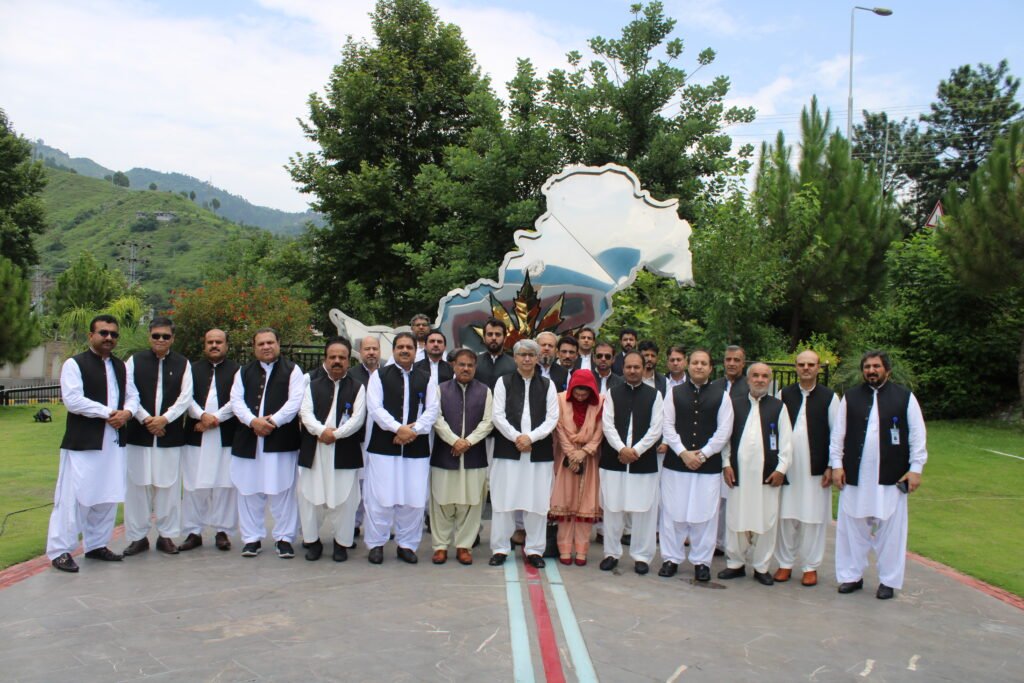Mid Career Management Course(MCMC)
Learning is for everyone—any age, any stage. We support growth through every life phase.
Mid Career Management Course (MCMC)

The Government of Balochistan had long felt the need for an indigenous training institution to address the gap in training management and capacity building of the civil servants in the province. This idea was finally materialized with the establishment of Balochistan Civil Services Academy (BCSA) in February, 2023. The main goal of the Academy is the professional development of provincial civil servants to improve their knowledge, abilities, and professional skills to enable them to serve the public better by carrying out their jobs and obligations effectively towards policy formulation and execution in the province. The Mid Career Management Course (MCMC) is designed to develop managerial leadership skills of mid-career officers by providing the participants a multidimensional training that combines knowledge of public administration, policymaking, and management principles with experiential learning experiences. The course will equip the participants with tools and procedures they need to develop, implement, and assess policies. This includes assisting them in better understanding the process of formulating, evaluating and implementing policies.
Course Aim
Expected Outcomes
Expected Outcomes
- To equip participants with basic and advanced-level ICT skills for improved problem-solving and evidence-based decision-making;
- To foster understanding of public policy processes, models and implementation, and equip the participants to do research, evaluation and analysis of public policy needed at the operational level
- To familiarize the participants with internal and external environment affecting operational planning and execution of public policy
- To improve comprehension of governance issues, enhance understanding of administrative structures and challenges with particular reference to unique administrative and cultural features of Balochistan for effective service delivery at operational level;
- To equip participants with managerial leadership skills to develop their core functional competencies in areas of decision-making and problem-solving in process of devising and implementing public policy
- To introduce participants to the idea, methods, and skills of performance management and assessment for improved public service delivery;
- To acquaint participants with the concepts of economics and public finance management and their operational and tactical applications.
Course Modules and Conduct
| Module-1 | Introduction to IT and IT-based Decision Making Module-1A: Introduction to Information Technology & Computing (Basic) Module-1B: Use of ICT, Data Visualisation and GIS Application in Evidence-based Decision Making for Effective Service Delivery (Advance) |
| Module-2 | Module-2: Public Management, Public Policy and Public Administration Issues in Pakistan Module-2A: Understanding Public Policy Process and Research Methods Module-2B: Institutional Framework of Public Management and Important National and Provincial Issues Module-2C: Unique Administrative Features of Balochistan and other provinces and regions of Pakistan |
| Module-3 | Managerial Leadership Skills for Effective Public Service Delivery |
| Module-4 | Administrative Structures, Governance Issues and Service Delivery |
| Module-5 | Economic Development & Public Finance Management |
Course Modules and Conduct
- Each module will be sponsored by a faculty member, who is responsiblefor organizing and conducting it in accordance with the curriculum under the overall guidance of the Director General Balochistan Civil Services Academy (DG, BCSA);
- Module-1 including 1A and 1B will be held at the ICT Department, Balochistan University of Information Technology, Engineering and Management Science (BUITEMS), main Takatu Campus, Baleli, Quetta;
- The sessions of all other Modules are planned generally to take place in the BCSA campus through Lecture Discussion (LD), Panel Discussion (PD), Workshop (W) and other modes etc. Scholars and eminent speakers who are authorities in their fields are asked to give speeches on predetermined topics. The talks are followed by question and answer sessions where participants are encouraged by providing opportunities to clarify and bring up their thoughts, opinion and questions related to the subject and linking with formulation and execution of public policy;
- Final assessment will align with core competencies.
Course Events and Credit Hours
The above Modules will be covered in the following number of events and hours:-
| S# | Events in Three Terms | Total No of Events | Total No. of Hours |
|---|---|---|---|
| 1 | Lecture Discussions (LD) | 69 | 121 |
| 2 | Panel Discussions (PD) | 8 | 18 |
| 3 | Tutorial Discussions (TD) | 2 | 3 |
| 4 | Workshops (W) | 34 | 146.5 |
| 5 | Seminar | 2 | 5 |
| 6 | Extended Case Study (ECS) | 1 | 36 |
| 7 | Simulation Exercise (SE) | 1 | 36 |
| 8 | Analysis Papers | 3 | 4.5 |
| 9 | Policy Brief Individual Presentations | 24 | 10 |
| 10 | Policy Analysis Paper | 1 | 2.5 |
| 11 | Local Field Visits | 2 | 14 |
| 12 | Study Tour | 1 | 40 |
| 13 | MCQs | 5 | 5 |
| Total Events & Hours:- | 153 | 441.5 |
